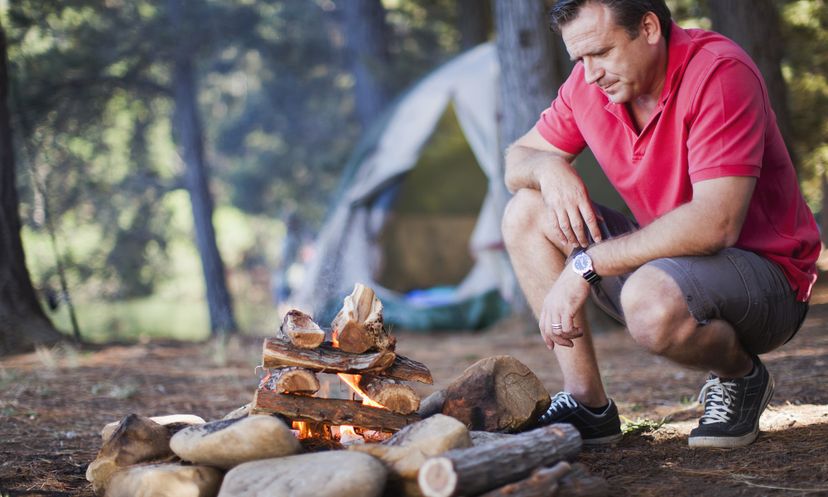
About This Quiz
"Are you ready to test your survival skills in the wilderness? Join Sharita Sykes in ""The Ultimate Survival Skills Quiz"" where you'll be faced with scenarios that require you to build shelters, start fires, and even eat bugs for nourishment. Can you make it out alive in this thrilling 2-minute quiz?
Embark on a journey through the wild and see if you have what it takes to survive in nature. From building shelter to finding food, every decision you make could be the difference between life and death. Challenge yourself and see if you have the ultimate survival instincts!
Don't miss out on this exciting survival quiz that will test your knowledge and skills in the great outdoors. Sharpen your survival skills and see if you have what it takes to conquer the wilderness. Are you up for the challenge? Play now and find out!
"The human body needs a minimum of 2 quarts (1.9 liters) of water per day for good health. One day without water is cause for serious concern, and three days without water will lead to almost certain death.
Although most insects are edible, a good rule of thumb is to steer clear of brightly colored ones as well as those that are hairy or pungent.
Staying near a source of water is a good idea when building a shelter. You should avoid natural hazards like cliffs and dry river beds.
Advertisement
Insect eggs can be found in moist areas under rocks and inside rotten tree logs or stumps.
Sleeping on the ground can lead to loss of body heat. You'll retain more warmth by piling grass or pine needles on the ground to sleep on.
Warm sweet liquids such as hot chocolate will give the body energy to produce heat. Proteins, fats and carbohydrates such as trail mix can stimulate the metabolism. Caffeine is not good because it acutally draws body heat to the extremities and away from the core.
Advertisement
Eating frozen snow and ice will reduce your core body temperature and lead to dehydration.
Elderberries (Sambucus canaensis) contain poisons like cyanogenic glycoside, which can cause nausea and vomiting.
Count the number of seconds between flashes and claps and divide this number by five to estimate how many miles away an approaching storm is.
Advertisement
The majority of an insect's body is pure protein. Insects actually hold more than three times the amount of protein (for their size) as beef.
Ample plant life, insects, bird flight paths and animal tracks can all point toward water sources.
Dry mouth and a rapid heartbeat is a sign for moderate dehydration. Vomiting and diarrhea is a strong indication for severe dehydration.
Advertisement
When attempting to catch dinner using the simple snare, it is best to tie the noose at one and half times the size of your prey's head.
When in extremely cold conditions, watch out for stiff joints, loss of bladder control, puffy face, mental confusion, shivering, slow pulse, loss of coordination, and slurred speech to indicate an onset of hypothermia. But not a cough.
Venomous snakes tend to have elliptical pupils, while non-venomous snakes have round pupils. This is not foolproof though, as the poisonous coral snake has round pupils. Not to mention you don't want to get that close to a snake to find out!
Advertisement
The beetle species are the most popular edible insect in the world. Placing these critters over a fire will make them a sizzling delight.
Walking directly toward the sun at noon takes you south; walking with the sun at your back takes you north. The opposite is true in the Southern Hemisphere.
When the moon rises before sunset, the bright side is in the west; if it rises after midnight, its eastern side is illuminated.
Advertisement
A battery, a magnifying lens and even a soda can with chocolate can be used to produce a spark for a fire.
While not precise directional guides, moss on trees and anthills can help you to figure out what direction you're facing. In the Northern Hemisphere, moss on the north side of trees will often be thicker because that side is shadier; ants often build their nests on the south or southeastern side of trees, where it's warmer.